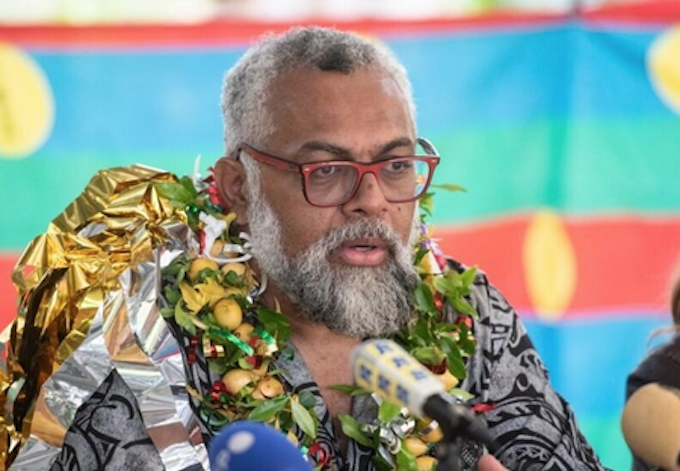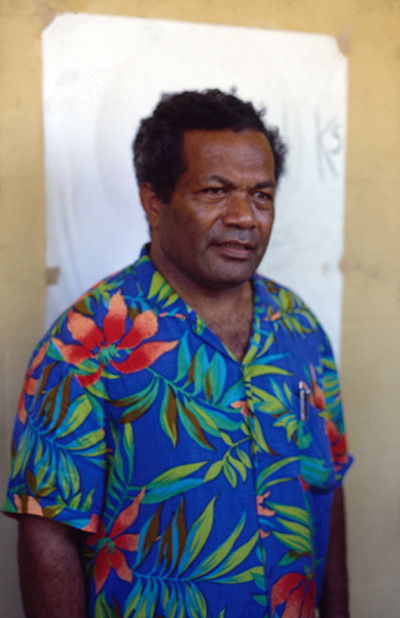
ANALYSIS: By Denise Fisher
The voters in the second round of France’s national elections last weekend staved off an expected shift to the far-right. But the result in the Pacific territory Kanaky New Caledonia was also in many ways historic.
Of the two assembly representatives decided, a position fell on either side of the deep polarisation evident in the territory — one for loyalists, one for supporters of independence. But it is the independence side that will take the most from the result.
Turnout in the vote was remarkable, not only because of the violence in New Caledonia over recent months, which has curbed movement and public transport across the territory, but also because national elections have been seen particularly by independence parties as less relevant locally.
Not this time.
The two rounds of the elections saw voters arrive in droves, with 60 percent and 71 percent turnout respectively, compared to typically low levels of 35-40 percent in New Caledonia. Images showed long queues with many young people.
Voting was generally peaceful, although a blockade prevented voting in one Kanak commune during the first round.
After winning the first round, a hardline loyalist and independence candidate faced off in each constituency. The second round therefore presented a binary choice, effectively becoming a barometer of views around independence.
Sobering results for loyalists
While clearly not a referendum, it was the first chance to measure sentiment in this manner since the boycotted referendum in 2021, which had followed two independence votes narrowly favouring staying with France.
The resulting impasse about the future of the territory had erupted into violent protests in May this year, when President Emmanuel Macron sought unilaterally to broaden voter eligibility to the detriment of indigenous representation. Only Macron then called snap national elections.
These are sobering results for loyalists.
So the contest, as it unfolded in New Caledonia, represented high stakes for both sides.
In the event, loyalist Nicolas Metzdorf won 52.4 percent in the first constituency (Noumea and islands) over the independence candidate’s 47.6 percent. Independence candidate Emmanuel Tjibaou won 57.4 percent to the loyalist’s 42.6 percent in the second (Northern Province and outer suburbs of Noumea).
The results, a surprise even to independence leaders, were significant.
It is notable that in these national elections, all citizens are eligible to vote. Only local assembly elections apply the controversial voter eligibility provisions which provoked the current violence, provisions that advantage longstanding residents and thus indigenous independence supporters.
Independence parties’ success
Yet without the benefit of this restriction, independence parties won, securing a majority 53 percent (83,123 votes) to the loyalists’ 47 percent (72,897) of valid votes cast across the territory. They had won 43 percent and 47 percent in the two non-boycotted referendums.
Even in the constituency won by the loyalist, the independence candidate Omayra Naisseline, daughter-in-law of early independence fighter Nidoïsh Naisseline, won 47 percent of the vote.
These are sobering results for loyalists.

Independence party candidate Emmanuel Tjibaou, 48, carried particular symbolism. The son of the assassinated founding father of the independence movement Jean-Marie Tjibaou, Emmanuel had eschewed politics to this point, instead taking on cultural roles including as head of the Kanak cultural development agency.
He is a galvanising figure for independence supporters.
Emmanuel Tjibaou is now the first independence assembly representative in 38 years. He won notwithstanding France redesigning the two constituencies in 1988 specifically to prevent an independence representative win by including part of mainly loyalist Noumea in each.
A loyalist stronghold has been broken.
Further strain on both sides
While both a loyalist and independence parliamentarian will now sit in Paris and represent their different perspectives, the result will further strain the two sides.
Pro-independence supporters will be energised by the strong performance and this will increase expectations, especially among the young. The responsibility on elders is heavy. Tjibaou described the vote as “a call for help, a cry of hope”. He has urged a return to the path of dialogue.
At the same time, loyalists will be concerned by independence party success. Insecurity and fear, already sharpened by recent violence, may intensify. While he referred to the need for dialogue, Nicolas Metzdorf is known for his tough uncompromising line.
Paradoxically the ongoing violence means an increased reliance on France for the reconstruction that will be a vital underpinning for talks. Estimates for rebuilding have exceeded 2 billion euros (NZ$3.6 billion), with more than 800 businesses, countless schools and houses attacked, many destroyed.
Yet France itself is reeling after the snap elections returned no clear winner. Three blocs are vying for power, and are divided within their own ranks over how government should be formed. While French presidents have had to “cohabit” with an assembly majority of the opposite persuasion three times before, never has a president faced no clear majority.
It will take time, perhaps months, for a workable solution to emerge, during which New Caledonia is hardly likely to take precedence.
As New Caledonia’s neighbours prepare to meet for the annual Pacific Islands Forum summit next month, all will be hoping that the main parties can soon overcome their deep differences and find a peaceful local way forward.
Denise Fisher is a visiting fellow at ANU’s Centre for European Studies. She was an Australian diplomat for 30 years, serving in Australian diplomatic missions as a political and economic policy analyst in many capitals. The Australian Consul-General in Noumea, New Caledonia (2001-2004), she is the author of France in the South Pacific: Power and Politics (2013).













































